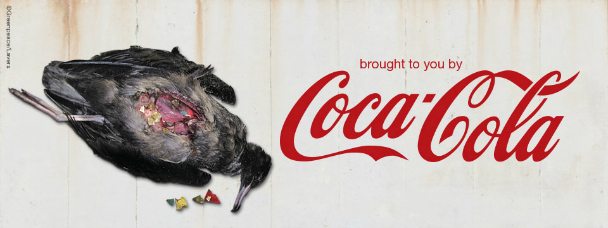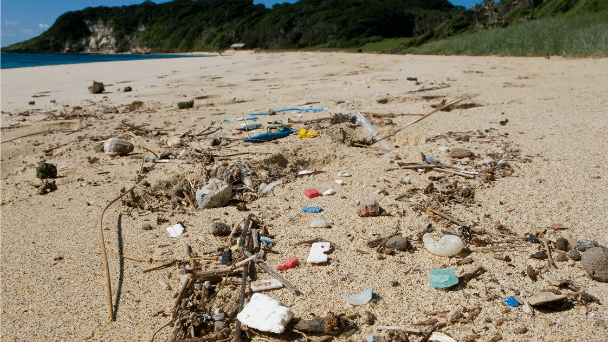Why is it every time I try to pay a visit to the managing director of Coca Cola I’m met by police?

It started when a small group of us delivered bags of empty bottles and cans to then managing director Terry Davis at his office.
It continued when I attempted, with a couple of friends from the environment movement, to deliver a giant invoice for $6 million to the beverage giant. We were asking Coke to pay back taxpayers for the costs of the court action it took to shut down the Northern Territory government’s container deposit recycling scheme.
Coca Cola calling in the police is an overreaction, and suggests disregard for the spending of taxpayers’ dollars.
This behaviour – blocking access and abusing public resources – is what big beverage companies have been doing for decades.
They throw their weight around, even using a community organisation such as Keep Australia Beautiful to lobby MPs, in an effort to stop a cash for containers beverage recycling scheme that would do the heavy lifting when it comes to cleaning up Australia.
They have dubbed cash for containers a new tax that they say would cost jobs and make drinks more expensive.
Australian volunteers have been cleaning up beaches, parks, streets, bush and waterways for nearly 25 years.
During this time they have removed more than 306,779 tonnes of rubbish, six times the weight of the steel holding up the Sydney Harbour Bridge.
Last year alone, beverage containers outstripped cigarette butts as the most removed item.
Every single one of those bottles and cans could have been recycled.
© Ian Hutton
Thankfully people’s enthusiasm for Clean Up Australia Day remains strong, with hundreds of thousands of volunteers working in their communities every year.
Where there seems to be less enthusiasm is at state and federal government level, where it is frustratingly difficult to get many MPs excited about implementing a cash for containers recycling scheme.
This is despite overwhelming community support, which begs the question: Who does your local MP believe they are representing? You, or the interests of a big spending corporate?
In South Australia a container refund scheme has been working well for 35 years.
There, the recycling rates for cans and bottles are more than double that of the rest of Australia, at 80 per cent.
The new scheme in the Northern Territory, which eventually survived Coke’s court action, is gearing up to be just as successful.
Right now there are exciting signs that Victoria and NSW may be moving in the right direction.
Victorian Premier Denis Napthine supports a scheme, and is reportedly urging NSW Premier Barry O’Farrell to get on board.
At the end of April, when Environment Ministers next meet, it’s expected we will hear one of two things: Situation normal, which will excite only the big beverage makers, or the announcement that Victoria and NSW will establish a modern, convenient and efficient cash for containers scheme, satisfying the 84 per cent of Australians who say they want one.



